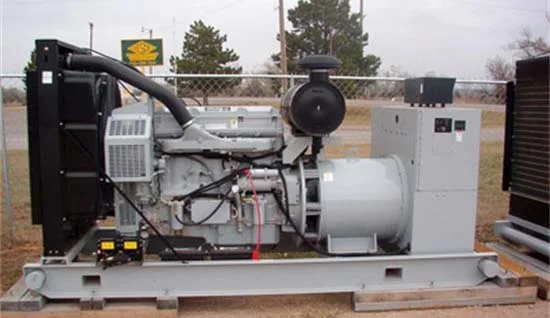Clean Air Act 1970
Clean Air Environment
A generator is an ideal source of backup power for homes and business establishments. In addition to providing a supply of backup power, it also helps to ensure that critical equipment is not shut down or damaged as a result of power outages.
One thing to keep in mind when choosing a generator is that most of these units burn a fossil fuel to generate electricity. This fuel could be diesel, bio-diesel, natural gas, gasoline, or liquefied petroleum gas (LPG). Whenever fuel is burnt, there is obviously some level of air pollution released in the form of exhaust gases.

In the United States, there are many federal, state, and local regulations that govern the discharge of these pollutants into the atmosphere. Most of these regulations are based on the requirements of the Clean Air Act of 1970. The Clean Air Act primarily regulates air emissions from stationary and mobile sources. It also establishes air quality standards to regulate the emissions of hazardous air pollutants.
The Act has established National Ambient Air Quality Standards that are enforced at the state and local levels through various local regulations. Overall enforcement of these standards is entrusted to the Environmental Protection Agency. You can read more about the Clean Air Act at the official website of the Environmental Protection Agency.
Air Quality Permits and Enforcement
The standards laid down in the Clean Air Act are enforced through state and local regulations by issuing air quality permits. These permits, which are issued by local air pollution control organizations, or in some cases the EPA, specify enforceable conditions regarding the limit of air pollution with which establishments must comply. You can find out more about local air pollution control authorities at the EPA website.
Most permits are valid for five years and will involve payment of an annual fee. Although regulations regarding air quality permits vary from state to state, there are some common points that are more or less uniformly applicable across most states.
Key Points About Air Quality Permits
- Most permanent generator installations require a permit. You should contact your local air pollution control authority to determine what permits are required.
- The permit should be obtained prior to installation of the generator. The company installing your generator set may guide you through the process of acquiring the required permits.
- Small, portable generator sets under 40kW or so are typically not required to get a permit. However, you need to check with your state and local government as laws vary.
- Generators that run on natural gas release fewer emissions of greenhouse gases compared to diesel generators. This can be beneficial when obtaining permits but limits your fuel source to local natural gas lines, which may be problematic during natural disasters.

Emergency Generators
Emergency Generator Requirements
Most establishments only require generators to provide backup power supply in the event that the main power from the utility line fails. Such generators are classified as emergency generators. These generators typically have to clear less stringent requirements to obtain an air quality permit.
Requirements for Emergency Generators
- The generator must only be operated in the event of failure of the main power supply from the utility line.
- The generator must not be run for a period exceeding a total of 200 to 500 hours per year. Note that this figure varies from state to state, and you should check your local regulations.
- Air quality permit requirements may be waived for smaller generators used only for home purposes.
- Restrictions on maximum power output apply.
As part of the certification process, you will be required to maintain a log of the running hours of the generator. Exceeding the permissible number of running hours may result in severe fines and penalties.
Applying for an Air Quality Permit
Permit Application Process
Most air quality permits are issued by the State Department of Environmental Quality.
Steps to Apply for a Permit
- Determine Emission Category: Identify whether your establishment qualifies as a minor or major source of emissions. Most emergency generator sets qualify as minor sources.
- Minimum Emission Levels: Check if your generator set emits gases above the minimum levels required for permits. If not, you may be exempt.
- Location-Specific Standards: Establishments in large cities may have more lenient emission standards compared to those in non-attainment areas. For example, New York City allows higher emissions than rural areas.
- Compliance with State Requirements: After determining your category, the state will specify the allowable emission levels. You will need to implement safeguards to maintain these requirements and ensure your equipment complies with technical standards.
The process can be simplified by employing a company specializing in designing and installing generator sets that meet mandated state requirements.